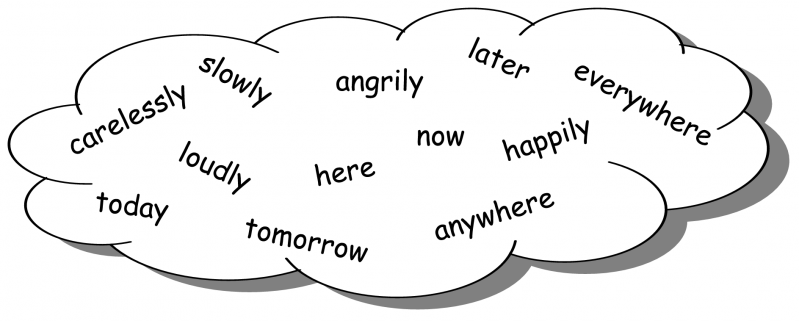Parts of Speech – Adverbs
Adverbs are words that modify or gives more information about a verb, an adjective, another adverb, or even the entire sentence. Adverbs tell you how something is done, when something is done, or where something is done.

An adverb can describe a verb.
She sings beautifully.
An adverb tells more about a verb in the sentence.
The trains are running frequently.
An adverb describes more about an adjective in the sentence.
The news is very alarming!
An adverb modifies another adverb in the sentence.
It rains very hard.
As a general rule, adjectives can be changed into adverbs by adding ‘ly’:
slow – slowly quick – quickly comfortable – comfortably
If you want to change adjectives ending in ‘y’ into adverbs, change the ‘y’ to ‘i’ and add ‘ly’.
happy – happily, easy – easily
the 3 main categories of adverbs are:
- degree, manner, or place,
- time, frequency, or duration,
- probability, comparative adverbs and superlative adverbs.
Adverbs of degree
These answer the following questions:
How much? To what degree?
Words such as very, highly, totally, perfectly, partially, almost make up adverbs of degree, for example.
We almost made it to the train.
Adverbs of manner
These answer the following question:
How?
These words are associated with this usage – well, badly, nicely, slowly, loudly, quietly, happily, sadly, secretly, weakly.
She worked intensely to finish the project
Adverbs of place
These answer the following question:
Where?
Words like home, here, there, outside, inside, away, around, anywhere, abroad, up, down, out.
We are here.
Adverbs of time
These answer the following question:
When?
Now, soon, later, yesterday, tomorrow, early, before, lately, recently.
I will do it later.
Adverbs of frequency
These answer the following question:
How often?
Word such as always, never, sometimes, often, rarely, usually, occasionally..
We often go to that park.
Adverbs of duration:
These answer the following question:
For how long?
Forever, constantly, temporarily, briefly.
We spoke briefly.
Adverbs of probability
These answer the following question:
How likely?
With words such as these: certainly, maybe, probably, possibly, surely.
She will certainly give it back.
Adverbs tell you how something is done, when something is done, or where something is done.




















